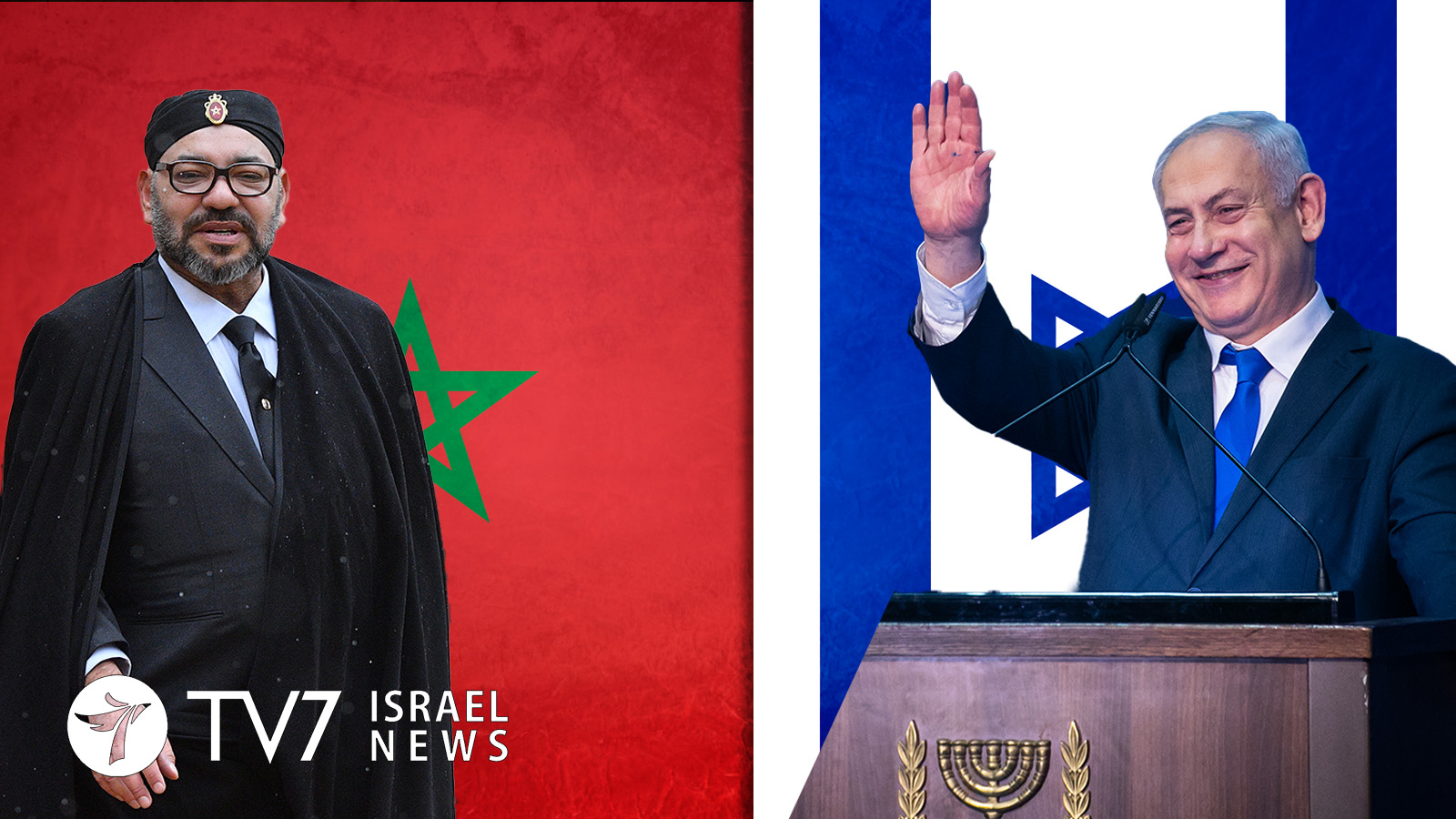Israel and Morocco have agreed to normalize relations in a deal brokered by the United States, making the Kingdom the fourth Arab country to set aside hostilities with Israel in as many months.
Morocco joins the United Arab Emirates, Bahrain and Sudan in the forging of deals with Israel, driven in part by Washington-led efforts to present a united front against Iran and roll back the Islamic Republic’s influence in the region.
U.S. President Donald Trump sealed the accord during a telephone conversation with Morocco’s King Mohammed VI last night.
“Another HISTORIC breakthrough today! Our two GREAT friends Israel and the Kingdom of Morocco have agreed to full diplomatic relations – a massive breakthrough for peace in the Middle East!” Trump later wrote on Twitter.
As part of the deal, Trump broke with longstanding U.S. policy to recognize Morocco’s sovereignty over the Western Sahara; where a decades-old territorial dispute in the desert region has pitted Morocco against the Algeria-backed Polisario Front, a breakaway movement that seeks to establish an independent state.
Trump’s announcement was warmly welcomed in Jerusalem.
“I’ve always believed that this historic day would come, I’ve always worked for it,” said Prime Minister Benjamin Netanyahu, adding, “I want to first thank President Trump for his extraordinary efforts to expand peace, to bring peace to Israel and the peoples of the Middle East. President Trump, the people of Israel and the State of Israel will be forever indebted to you for your magnificent efforts on our behalf. I want to thank, too, the King of Morocco, King Mohammed VI, for taking this historic decision to bring a historic peace between us.”
The Israeli Premier made the statements alongside U.S. Ambassador to Israel David Friedman during a state ceremony to light the first candle for Hanukkah at the Western Wall on the Temple Mount. The 8-day Jewish “Festival of lights” holiday commemorates the 2nd century BC victory of Judah Maccabee and his followers in a revolt in Judea against armies of the Seleucid Empire and the ensuing restoration of the biblical temple in Jerusalem.
“There is nothing like this evening, in this place in Jerusalem, on this holiday, to mark the huge change that occurred in the annals of our people,” proclaimed Netanyahu, underscoring that, “The Maccabees saved the Jewish people; they saved the Jewish heritage and religion. Without them the Jewish people would not exist.”
Also participating in the service via Zoom were Minister David Amsalem, World Zionist Organization Chairman Yaakov Hagoel and representatives of Diaspora Jewish communities from Greece, Italy, England, the US, Hungary, Poland, Scotland, Sweden and Germany.
“I think that this is the foundation on which we can now build this peace. We’ll resume liaison offices quickly between Israel and Morocco and work as rapidly as possible to establish full diplomatic relations,” Netanyahu told his audience, vowing to swiftly implement direct flights between Israel and Morocco.
“This will be a very warm peace. Peace has never – the light of peace on this Hanukkah day has never – shone brighter than today in the Middle East,” he said.
The Israeli public also greeted the accord with expressions of hope that the widening circle of peace would stimulate additional countries to establish full diplomatic relations with the Jewish State.
“So the new diplomatic relation with Morocco is something that is really beautiful with both of the countries,” Tel Aviv resident Tamir Gofschteim told Reuters, adding, “I hope that it’s just going to be the beginning of more diplomatic achievements between Israel and other Middle Eastern countries, and North Africa of course, and hopefully the Palestinians will also be the next ones.” Another resident identified as Gv Harel said, “”I think it’s very good because it is a country, very important country and it is also the war relationship in the past between people and between politicians, Israelis and Moroccans. Now it is going to be formal and official. I think it is going to be very good for Israel.” Sholmit Kovner commented, “I hope it will continue to influence the Mediterranean, all of the Mediterranean. I hope it will be a real peace. I am afraid that Bibi (Netanyahu’s nickname) and Trump are doing it because Trump wants to help Bibi – so he will be the ‘King of Israel.’”
Meanwhile, inhabitants of the Moroccan capital of Rabat questioned authenticity of the “official” normalization announcement, given the open maintenance of friendly ties with Israel, which is home to a a large Jewish Moroccan community. Others voiced concern over the perceived plight of the Palestinians.
“Before the normalization, there was the U.S. admitting that the Sahara belongs to Morocco with a promise to open a consulate at El-Dakhla to endorse commercial trade with Africa, while considering Morocco as a bridge to Africa. Of course, Morocco will defend its interests, the relationship with Israel was always there, with them having an office in Rabat, but that will never come against the Palestinian cause, because the King, the president of Al-Quds committee and Palestine will always remain important to Moroccans as much as the Moroccan Sahara,” said Mustafa Aslalo. He added that, “It is not acceptable to solve one political problem in our country by manipulating our principals and ethics.”
Additional countries are now reportedly considering joining the circle of peace with Jerusalem.
A senior Israeli official speaking on condition of anonymity revealed that a normalization agreement with yet another Arab country ‘would be announced soon.’ This was also confirmed by a U.S. official, who acknowledged that efforts to reach agreement with more Arab states are ongoing during the final days of President Trump’s first term in office.
